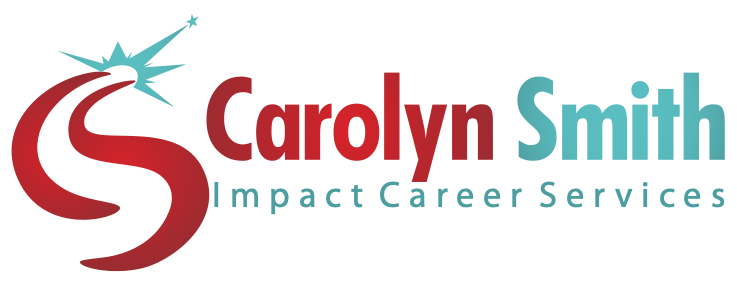The reality is looking for a new job was a huge undertaking prior to COVID 19 and all COVID 19 has done is further accelerate matters with increased competition.
You see even BEFORE COVID 19 appeared, massive changes within recruitment had occurred, with technology dramatically impacting job seekers. In recent years, there has been a worldwide shift in the way employers hire, which is driven by data, online job boards, new technology, increasing demands for exact matches by employers and digital obstacles. So even in the good times, it was taking months for some to secure a job.

Job seekers are largely unaware of the massive shift in technology and how it is impacting on their job search. Take these 2 facts:
- Job boards have turned job seekers, (including highly skilled job seekers) into commodities, as competition has increased 1,000-fold. (You want to avoid becoming a commodity)
- Jobseekers are unaware, that many large organisations and recruiters use Applicant Tracking Systems, that are largely reliant on them having the right key words within their resume / CV.
To overcome the barriers of this new technology, job seekers now need quite a long list of skills and knowledge to ensure they nail their perfect job.
To make my point, I’ve listed below a list of skills and knowledge that you needed prior to the advent of the online job boards, compared with a list of skills that you require today (along with resources to help you).
Skills and knowledge needed prior to online boards and the advent of technology within recruitment
- Networking
- Dropping a copy of your resume into business premises
- Applying for jobs advertised in newspapers, or posted on the business window
- Ability to craft a basic resume and cover letter
- Attention to grammar and punctuation
- Job interview skills
- Showing up in a suit to the job interview
- Careful follow up after a job interview, including a written thank you note
- Great listening skills
- Capacity to lick a stamp and send an application in
- Salary negotiation (if an executive)
Now, I’m not going to get nostalgic on you and tell you it was the ‘good old days’, as there was a lot of nepotism, inequality and less opportunity for many groups. But when you look at the list above, the basic education you got in school on how to write an effective resume was more than sufficient.
Skills and actions needed in the modern job search
Compare this to the following list below and you can see that technology has made a job seekers life more difficult. COVID 19 is just going to accelerate the pace of change and moving into a recession, I predict that job seekers will increasingly be made to go through more complex recruitment processes and candidate care will decline dramatically.
Below is a list of current skills and knowledge that you require to really accelerate your job search. I’ve listed them under specific headings, as the list is quite comprehensive
Resumes / CV
- The ability to create a resume that aligns with the EXACT needs of the employer (multiple versions required). When I work with clients, I provide training resources, teaching them how to adapt their resume for each and every position.
- Attention to grammar and punctuation.
- An ability to craft a resume that captures a hiring persons attention (the 30 second rule), including an effective profile and ensuring accomplishments are highlighted.
- An understanding of Applicant Tracking Systems, so you can ensure your resume is optimised, such as the right file format and inclusion of the right key words (without keyword stuffing).
Cover Letters
The ability to create an individualised cover letter that grabs the employers or recruiter’s attention – as a generic cover letter is no longer sufficient.
Knowledge and ability to craft other job application letters, including:
- Thank you, letter/note,
- Prospecting letter
- Networking letter
- Email cover note
Government Applications
If applying for a government job, you need a detailed understanding of how the government process works. This includes:
- How to successfully address selection criteria, using the STAR, PAR, CAR or SAR methodologies.
- The ability to craft a 2-page cover letter that addresses all the specific requirements of the job, including selection criteria.
- If behavioural questions are used, you need to know how to address these successfully.
Networking
This is one element that has not changed, namely face-to-face networking. Ironically, in spite of the advent of technology, it is still one of the most effective ways to secure the ideal job.
However, since you can’t currently do face-to-face networking you need to have the right knowledge to be able to leverage an online networking effectively.
A modern job seeker needs to have a very good understanding of how to use LinkedIn effectively, including:
- An understanding of basic search engine optimisation (SEO), so that your profile contains the right key words – so recruiters can find you (up to 49% of searches on LinkedIn are keyword related searches).
- A solid understanding of how LinkedIn works, including the need for a 100% profile, setting the right location and interacting and posting effectively on LinkedIn.
- The ability to craft a LinkedIn profile that captures interest, including inserting an effective summary, leveraging accomplishments, adding media, securing recommendations and uploading an appropriate photograph.
Personal Branding
The modern professional is told that they now need to create a personal brand and manage their online reputation. To establish an effective presence, job seekers need to become experts in personal branding, which could include:
- LinkedIn (see above)
- Blogging
- Web Portfolio
- Article Writing
- Publications and Speaking
More generally, job seekers need to know how their digital footprint is impacting on their career and how to leverage social media.
Job Interviews
There are now multiple interview options, so you need to understand the various type of interviews and how to approach them, including:
- Stress Interview
- Group Interview
- Practical Interview
- Panel Interview
During COVID 19 restrictions, you need to be able to nail:
- Telephone Interviews
- Live Video/Skype Interviews
- The ability to manage the technical requirements of a video interviewing, including ensuring the right camera angle, checking a microphone, through to making sure the connection is perfect.
- An understanding of how colors work online – e.g. avoiding contrast issues.
- How you appear on camera is different to real life, so you need to learn how to perform well in front of a camera (just like an actor).
This includes researching what to wear to the interview, so you are a cultural match (a suit is no longer the automatic attire you should wear).
You need a sound understanding of how to conduct yourself in a modern interview, including asking the right questions, building rapport, using your advanced research of the company and incorporating it into the dialogue, and successfully using an individualised elevator pitch to when asked questions, such as tell me about yourself, you easily nail it.
You need great listening skills and careful follow up after a job interview, including a thank you note.
Finally, you need to the ability to negotiate a better salary, including techniques so you don’t disclose current salary and making sure you understand the negotiation process.
Employment Tests
As a job seeker, you need to understand the various employment tests and how they are applied, including:
- Cognitive Ability Tests
- Personality Tests
- Integrity Tests
- Situational Judgement Tests
- Job Samples
Not only should job seekers understand the various employment tests, but they need to research so they can get the edge on various employment tests – e.g. undertaking research, so you know more about the employer and attitudes that the employer wants to see in the workplace, if undertaking a situational judgment test.
Hidden Job Market
Finally, since most job seekers have such a poor success rate with job boards, they need to become experts on the hidden job market. This includes advanced research skills that go beyond a simple Google, or Bing search and how to access the real decision maker within an organisation.
Well, this is my list from the top of my head. I’m sure there are other skills and knowledge that job seekers require and drop me an email if you can think of any that should be added. As you can see there is a huge difference between the skills and knowledge required just 20 years ago and the modern job search. In spite of this:
- Job seekers are still predominantly relying on a generic one-fits-all resume and job boards, as they simply don’t understand how technology and modern recruitment techniques and practices are impacting on their job search.
- Schools are still teaching resume writing 101 that simply does not provide the right framework for young people to succeed.
So yes, in the coming weeks you will need to revamp your resume. You also need to ensure you have a comprehensive understanding of how modern recruitment practices really work, if you are going to succeed.

Precise article written for both readers and expert bloggers. Thanks for writing on Why updating your resume is no longer enough!